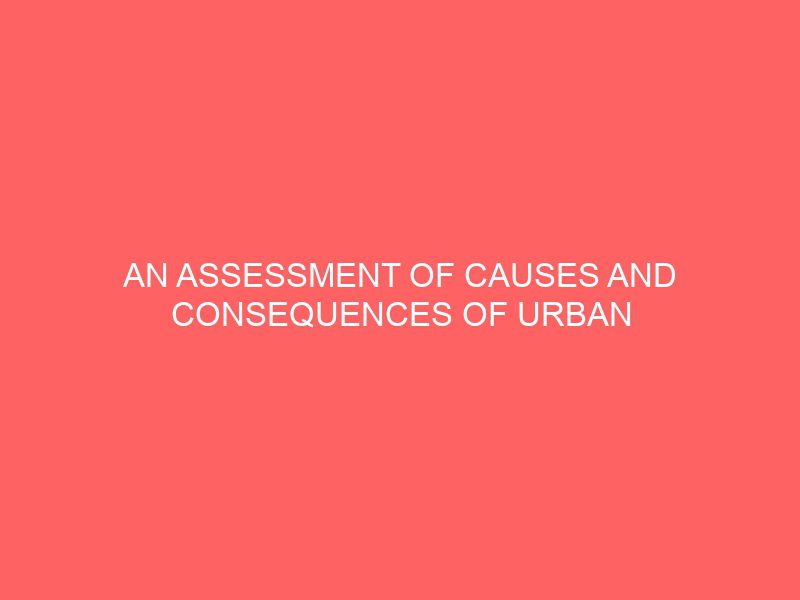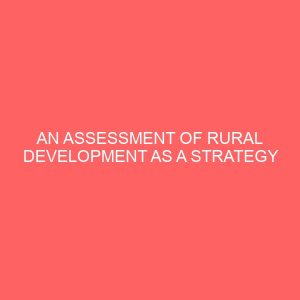Description
Abstract
This project is on an assessment of causes and consequences of urban poverty in Nigeria, case study Suleja local government area. As Nigeria experiences the major thrust of urban growth, urban poverty has become the most intractable phenomenon attracting the attention of concerned observers, who has discovered however, a wide range of interrelated variables, including the people”s annual income, their educational level, occupational distribution, residential status, and even psychological factors explaining the structure of poverty in Suleja. As a result, the poor in Suleja are seen to fall within a wide spectrum of deprivation. Thus, the study suggested that since a mix of lots of factors is involved in assessing urban poverty, the phenomenon called for a system approach which takes into consideration the interacting characteristics of the diverse parameters of the whole system, in the formulation of anti-poverty measures. This study is carefully divided into five chapters with one leading to another. Chapter one deals with the introduction of the study, the background of the study, statement of problems, research questions, objectives of the study, scope and limitation of the study, significance of the study and definition of terms. Chapter two deals with literature review, that is the historical background of suleja local government, the meaning of poverty, poverty and its common misconception, indicators of poverty, major causes of poverty in Nigeria, poverty reduction- whose responsibility, indices for measuring poverty reduction, the aims of local government, functions of local government, notable facts about poverty. Chapter three deals with sources of data, instruments of data, population and sample size and method of data analysis. Chapter four deals with data presentation and data analysis. Chapter five deals with a critical summary of findings, conclusion and recommendations.








Reviews
There are no reviews yet.